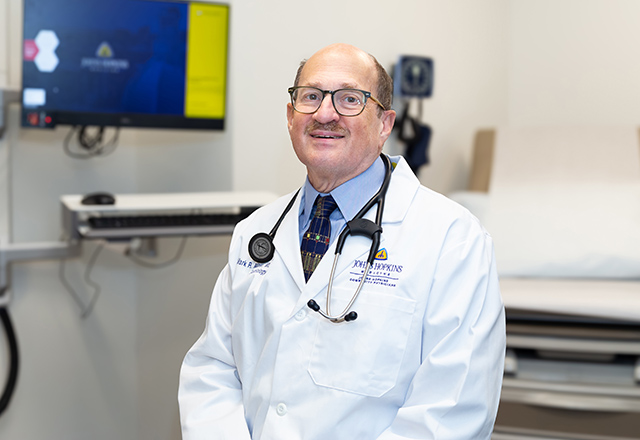Armstrong Award for Excellence in Quality and Safety
Clarita Dawson, M.D.
Chair of Anesthesiology
Johns Hopkins Howard County Medical Center
When a patient’s treatment requires administration of opioids at the hospital, crucial safety protocols come into play. A study conducted by Clarita Dawson helps identify potential at-risk populations for opioid overdose. Examining naloxone use monthly in various clinical departments will help practitioners at Johns Hopkins Howard County Medical Center understand how to modify prescribing practices, thereby improving the safety profile of opioid use.
The study, which began in 2019, captures information on all patients who received naloxone within 24 hours of facility administered opioids. Analysis of this infrequent event attempts to identify patient-specific factors that may affect opioid absorption, distribution, metabolism and elimination. This proactive approach includes presenting data and providing education to the medical staff not only about properties of various opioid formulations but also about nonpharmacologic analgesic management alternatives with comparative opioid potency. Continued focused review of naloxone administration identifies educational opportunities that will improve patient outcomes.
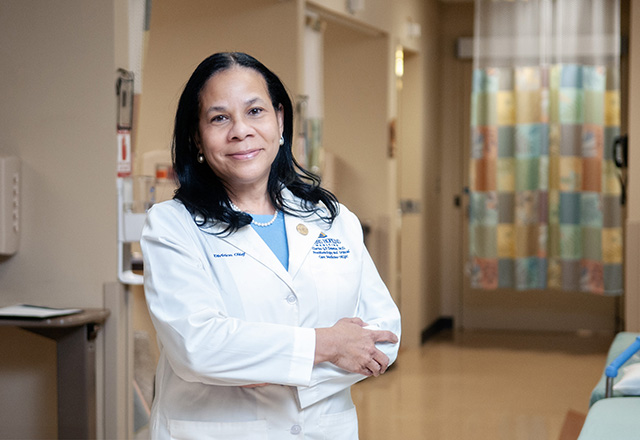
Arabela Stock, M.D.
Co-Director, Patient Safety and Quality
Heart Institute, Johns Hopkins All Children’s Hospital
Arabela Stock is a pediatric cardiac critical care specialist in the cardiovascular intensive care unit (CVICU) and a leader in the Heart Institute’s quality and patient safety initiatives. The CVICU team values her clinical decision-making, work ethic and passion for providing exceptional patient care through continuous quality improvement strategies. Her leadership in streamlining activation of extracorporeal membrane oxygenation (ECMO) for patients who are critically ill is an excellent example.
Dr. Stock recently led an interdisciplinary team that reviewed, restructured and standardized the daily rounding process. Introduction of a rounding tool to improve communication about care plans and a discharge checklist led to an increase in individualized patient discharge planning discussions, improved patient/family involvement in care planning, and fewer adverse events and readmissions. As part of this larger initiative, she mentored junior staff members as they designed a project to help infants with congenital heart disease avoid surgical placement of a gastric feeding tube in the abdomen, sharing guidance as the multidisciplinary team implemented a protocol for discharging the babies with a nasogastric tube. This work helped shorten hospital stays and supported infants’ transition to oral feeding at home.
Dr. Stock’s dedication to best practices, exemplary clinical outcomes and the CVICU patient experience reflects her commitment to the Johns Hopkins mission.

Jonathan Hansen, M.D.
Clinical Director and Vice Chair, Department of Emergency Medicine
Johns Hopkins Bayview Medical Center
As the clinical director of Johns Hopkins Bayview’s emergency department, Jonathan Hansen serves as the liaison to the hospital’s trauma program, as well as the primary reviewer for trauma cases and other concerns. Through this collaboration, the trauma program received a renewal of its certification from the Maryland Institute for Emergency Medical Services Systems (MIEMSS) earlier this year.
Dr. Hansen also co-chairs of Johns Hopkins Bayview’s sepsis committee and oversees the emergency department’s sepsis work, including the creation of a sepsis alert team, which ensures newer clinical staff members are supported by experienced team members in the care of patients with sepsis.
Beyond the emergency department, Dr. Hansen helped standardize the peer review process throughout the Johns Hopkins Health System. He is also co-chair of Johns Hopkins Bayview’s peer review committee, and he has implemented the standardized review process in the emergency department. He has received numerous accolades for his timely and thoughtful reviews.
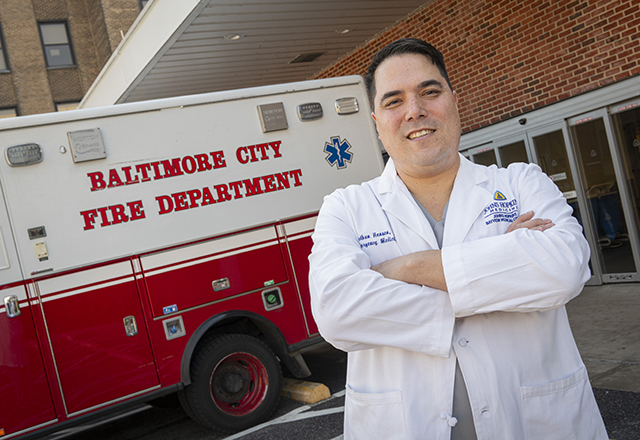
Naaz Hussain, M.D.
Office Medical Director
Johns Hopkins Community Physicians
Naaz Hussain is a visionary and inspirational quality leader at Johns Hopkins Community Physicians’ Frederick practice. Her can-do attitude, idealism, moral clarity and infectious enthusiasm have propelled her site to success in several quality metrics. She is enthusiastic, engaged and detail-oriented when it comes to her patients and her team, and she never shies away from taking on a challenge or trying something new to solve a problem.
Dr. Hussain's philosophy regarding the importance of wellness visits has elevated what is sometimes seen as a box-checking exercise into a meaningful clinical intervention. Her “Age Friendly Care - 4Ms” approach to conducting wellness visits identifies patients’ social determinant needs and gives practitioners and their staff members the tools to address them. Her site has felt the impact of her energy. As of September 2023, the Frederick practice achieved goals for 13 quality metrics — surpassing all other practices in adult quality metrics. She is the ultimate champion for quality and safety, and her efforts are having tangible effects on her patients.

Aaron Milstone, M.D.
Associate Hospital Epidemiologist, Pediatric Infectious Diseases Specialist and Professor of Pediatrics
The Johns Hopkins Hospital
During the last 15 years, Aaron Milstone has played a critical role in helping develop the pediatric infection control program at Johns Hopkins Children’s Center. He serves as an associate hospital epidemiologist and specializes in treating infectious diseases in children.
Dr. Milstone, whose research interests focus on antibiotic resistance and prevention of health care-associated infections, has helped create a safer and more welcoming environment for patients and their families. He has led multidisciplinary teams to reduce bloodstream infections in some of the most vulnerable children. In addition, he helped introduce protocols to help prevent surgical site infections in children receiving cardiac and orthopaedic surgery, and he implemented a comprehensive program to protect neonates from life-threatening staph infections.
He also started Project PROTect (Preventing Antibiotic Resistance, Organism Transmission and Health Care-Associated Infections in Children), which balances infection prevention and family-centered care, to help parents safely support their children while in the hospital. This program provides free vaccines and infection prevention education to parents whose children are hospitalized at the Children’s Center. Dr. Milstone also led a quality improvement program regarding diagnostic stewardship and reduction of over-testing in the pediatric intensive care unit. This important work expanded outside Johns Hopkins when Dr. Milstone and his team launched the BrighT STAR (Testing Stewardship to Reduce Antibiotic Resistance) Collaborative — a national quality improvement collaborative to reduce over-testing and antibiotic overuse among children who are critically ill.
Dr. Milstone has also been a dedicated mentor to numerous young faculty members. His leadership and expertise have resulted in significant improvements for patients and their families, and he provides clinical care of the highest quality.
“His work and leadership have changed clinical practice to provide safer care for our patients,” Dr. Milstone’s colleagues wrote on his award nomination form.
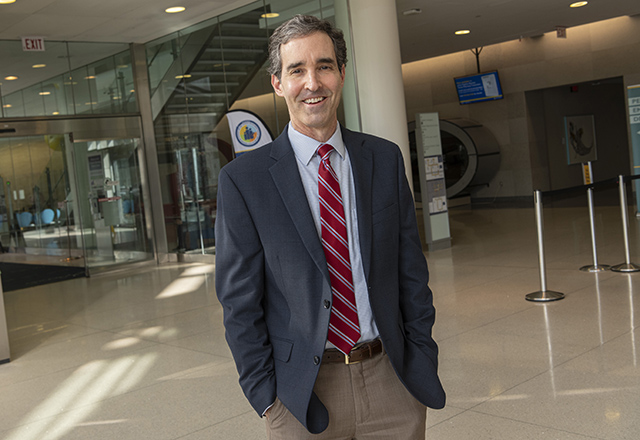
Colleen Kepner, M.D.
Medical Director of the Gyn/Ob Hospitalist Program
Sibley Memorial Hospital
As its inaugural medical director, Colleen Kepner developed the Ob/Gyn hospitalist program. She also leads inpatient care for Sibley Memorial’s maternal health access program, which focuses on enhancing the availability of prenatal and high-risk pregnancy care, increasing community outreach and community education, and addressing social determinants of health. All of this work is carried out to improve health equity so that everyone in the program receives safe, quality, culturally responsive care.
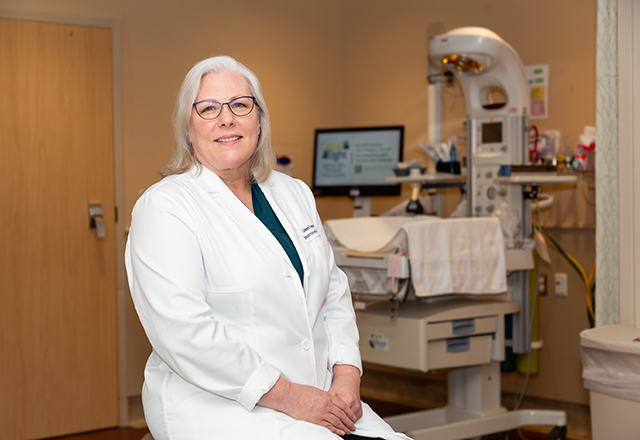
Mark Milner, M.D.
Director of Echocardiography
Suburban Hospital
For over 30 years, Mark Milner has played an integral role in ensuring quality outcomes as the medical director of the Suburban Hospital echocardiography program. Dr. Milner introduced transesophageal echocardiography to the hospital, which allows the cardiology team to take detailed pictures of the heart and improve detection and diagnosis. Thanks to his steadfast leadership, Suburban Hospital has achieved accreditation through the Intersocietal Commission for the Accreditation of Echocardiography Laboratories for 30 consecutive years. Each quarter, Dr. Milner leads an echocardiology quality conference, which his colleagues describe as “extremely educational as well as entertaining.” He also researched and implemented the WebPax system for echocardiography reporting and archiving, allowing clinicians to immediately view echocardiography images in Epic. His “inimitable style and passion for medical history” enhance his dedication to quality and safety at Suburban Hospital.
